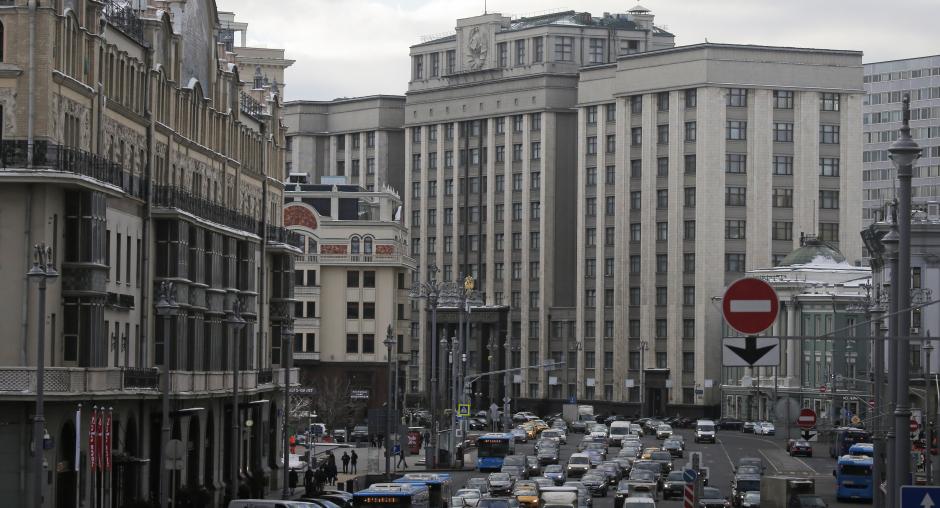Broadening of "foreign agents" status for media in Russia detrimental to freedom of expression online, says OSCE Representative

VIENNA, 26 January 2018 – The OSCE Representative on Freedom of the Media Harlem Désir today, in a letter to Vyacheslav Volodin, Chairman of the State Duma of the Russian Federation, called on the Russian Parliament not to adopt the draft law that through amendments to the “Statute on the Mass Media” extends the status of a "foreign agent" to individuals.
"This draft law represents a disproportionate interference in freedom of expression and media freedom, and may also have a considerable chilling effect. I wish that the deputies in the State Duma will not adopt it," said Désir.
According to the draft law, which went through its first reading on 12 January, anyone who publishes information online and receives any kind of financial or other assets including salaries, incomes or gifts from abroad could be considered as “media/foreign agents”. The proposed broad legal definition of this notion allows for registering as foreign agents not only professional journalists, but also bloggers, experts, or any other individual publishing information on their social media accounts, if they receive any money from abroad, for instance, from relatives, or business partners.
In addition, the amendments require that media outlets that are "foreign agents" should first establish Russian legal entities, also labelled as foreign agents, in order to be allowed to disseminate information in Russia. This imposes unnecessary bureaucratic procedures on the media that in addition are almost impossible for foreigners and foreign companies to comply with, because of restrictions on foreign ownership introduced in 2014.
The same draft law introduces amendments to the Russian telecom law (Federal Statute “On Information, Information Technologies and Protection of Information”) that would allow for blocking of access to the entire web platforms without prior court order if they are used for disseminating information by or originating from foreign agents without the relevant notification.
"Blocking without a court order or judicial oversight and blocking of entire web platforms represent disproportionate restrictions to freedom of expression online and, particularly, to the human right to access information (via the Internet). Furthermore, it is highly recommended not to apply them to sanction for actions that would not be considered illegal from the perspective of the international standards," stated the Representative.
Russian legal regulations on foreign ownership of the media and the "foreign agents" law have already been raised by the OSCE Representative on Freedom of the Media (see www.osce.org/fom/124143 and www.osce.org/fom/357111).
In December 2017, the Russian Ministry of Justice qualified that nine foreign media outlets “functioned” in Russia as foreign agents. They are the Radio Free Europe/ Radio Liberty (RFE/RL), several RFE/RL Russian language online media platforms, one RFE/RL platform in the Tatar and Bashkir languages, the Voice of America, and the two joint online media projects of the RFE/RL and the Voice of America.
The OSCE Representative on Freedom of the Media observes media developments in all 57 OSCE participating States. He provides early warning on violations of freedom of expression and media freedom and promotes full compliance with OSCE media freedom commitments. Learn more at www.osce.org/fom, Twitter: @OSCE_RFoM and on www.facebook.com/osce.rfom.
